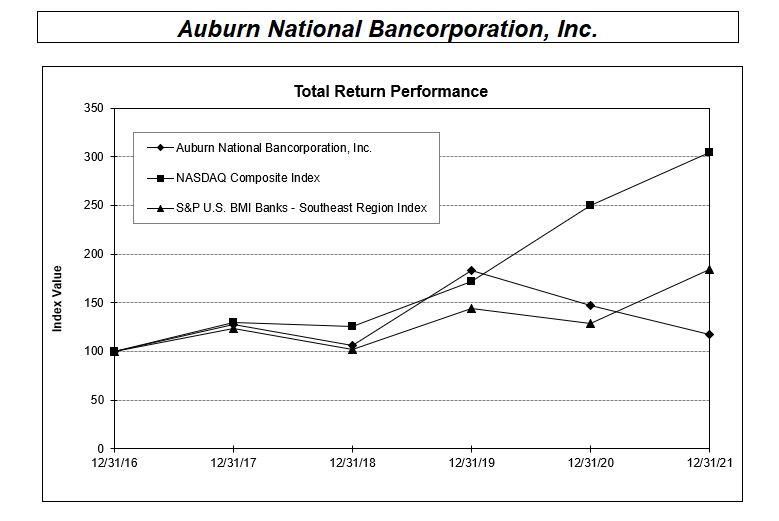11
The Bank generally services the loans it originates, including those it sells.
The CFPB’s mortgage servicing standards
include requirements regarding force-placed insurance, certain notices
prior to rate adjustments on adjustable rate
mortgages, and periodic disclosures to borrowers. Servicers are prohibited
from processing foreclosures when a loan
modification is pending, and must wait until a loan is more than 120 days delinquent
before initiating a foreclosure action.
Servicers must provide borrowers with direct and ongoing access to its personnel,
and provide prompt review of any loss
mitigation application. Servicers must maintain accurate and accessible
mortgage records for the life of a loan and until one
year after the loan is paid off or transferred. These standards increase the cost and compliance
risks of servicing mortgage
loans, and the mandatory delays in foreclosures could result in loss of value on collateral
or the proceeds we may realize
from a sale of foreclosed property.
The Federal Housing Finance Authority (“FHFA”)
updated, effective January 1, 2016, The Federal National
Mortgage
Association’s (“Fannie Mae’s”)
and the Federal Home Loan Mortgage Corporation (“Freddie Mac’s”)
(individually and
collectively, “GSE”) repurchase
rules, including the kinds of loan defects that could lead to a repurchase request to, or
alternative remedies with, the mortgage loan originator or seller.
These rules became effective January 1, 2016.
FHFA also
has updated these GSEs’ representations and warranties framework and
provided an independent dispute resolution
(“IDR”) process to allow a neutral third party to resolve demands after the GSEs’ quality
control and appeal processes have
been exhausted.
The Bank is subject to the CFPB’s
integrated disclosure rules under the Truth in Lending
Act and the Real Estate
Settlement Procedures Act, referred to as “TRID”, for credit transactions secured
by real property. Our residential
mortgage
strategy, product offerings,
and profitability may change as these regulations are interpreted and applied
in practice, and
may also change due to any restructuring of Fannie Mae and Freddie Mac
as part of the resolution of their conservatorships.
The 2018 Growth Act reduced the scope of TRID rules by eliminating the wait time
for a mortgage, if an additional creditor
offers a consumer a second offer with a lower annual percentage
rate. Congress encouraged federal regulators to provide
better guidance on TRID in an effort to provide a clearer understanding
for consumers and bankers alike. The law also
provides partial exemptions from the collection, recording and reporting requirements
under Sections 304(b)(5) and (6) of
the Home Mortgage Disclosure Act (“HMDA”), for those banks with fewer than 500
closed-end mortgages or less than
500 open-end lines of credit in both of the preceding two years, provided
the bank’s rating under the CRA for the previous
two years has been at least “satisfactory.”
On August 31, 2018, the CFPB issued an interpretive and procedural rule to
implement and clarify these requirements under the 2018 Growth
Act.
The Coronavirus Aid, Relief, and Economic Security Act (“CARES Act”)
was enacted on March 27, 2020. Section 4013 of
the CARES Act, “Temporary
Relief From Troubled Debt Restructurings,” provides banks
the option to temporarily
suspend certain requirements under ASC 340-10 TDR classifications
for a limited period of time to account for the effects
of COVID-19. On April 7, 2020, the Federal Reserve and the other banking agencies and
regulators issued a statement,
“Interagency Statement on Loan Modifications and Reporting for Financial Institutions
Working With
Customers Affected
by the Coronavirus (Revised)” (the “Interagency Statement on COVID-19
Loan Modifications”), to encourage banks to
work prudently with borrowers and to describe the agencies’ interpretation of
how accounting rules under ASC 310-40,
“Troubled Debt Restructurings by Creditors,”
apply to covered modifications. The Interagency Statement on COVID-19
Loan Modifications was supplemented on June 23, 2020 by the Interagency Examiner
Guidance for Assessing Safety and
Soundness Considering the Effect of the COVID-19 Pandemic on Institutions.
If a loan modification is eligible, a bank may
elect to account for the loan under section 4013 of the CARES Act. If a loan modification is not eligible
under section
4013, or if the bank elects not to account for the loan modification under section 4013,
the Revised Statement includes
criteria when a bank may presume a loan modification is not a TDR in accordance
with ASC 310-40.
Section 4021 of the CARES Act allows borrowers under 1-to-4 family residential
mortgage loans sold to Fannie Mae to
request forbearance to the servicer after affirming that such borrower
is experiencing financial hardships during the
COVID-19 emergency.
Such forbearance will be up to 180 days, subject to up to a 180 day extension. During
forbearance,
no fees, penalties or interest shall be charged beyond those applicable
if all contractual payments were fully and timely
paid. Except for vacant or abandoned properties, Fannie Mae servicers
may not initiate foreclosures on similar procedures
or related evictions or sales until December 31, 2020. On February 9. 2021,
the forbearance period was extended to March
31, 2021 after being extended to February 28, 2021. Borrowers
who are on a COVID-19 forbearance plan as of February
28, 2021 may apply for an additional forbearance extension of up to three additional
months. The Bank sells mortgage
loans to Fannie Mae and services these on an actual/actual basis. As a result, the Bank is
not obligated to make any
advances to Fannie Mae on principal and interest on such mortgage loans
where the borrower is entitled to forbearance.
FinCEN published a request for information and comment on December 15,
2021 seeking ways to streamline, modernize
the United States AML and countering the financing of terrorists.

